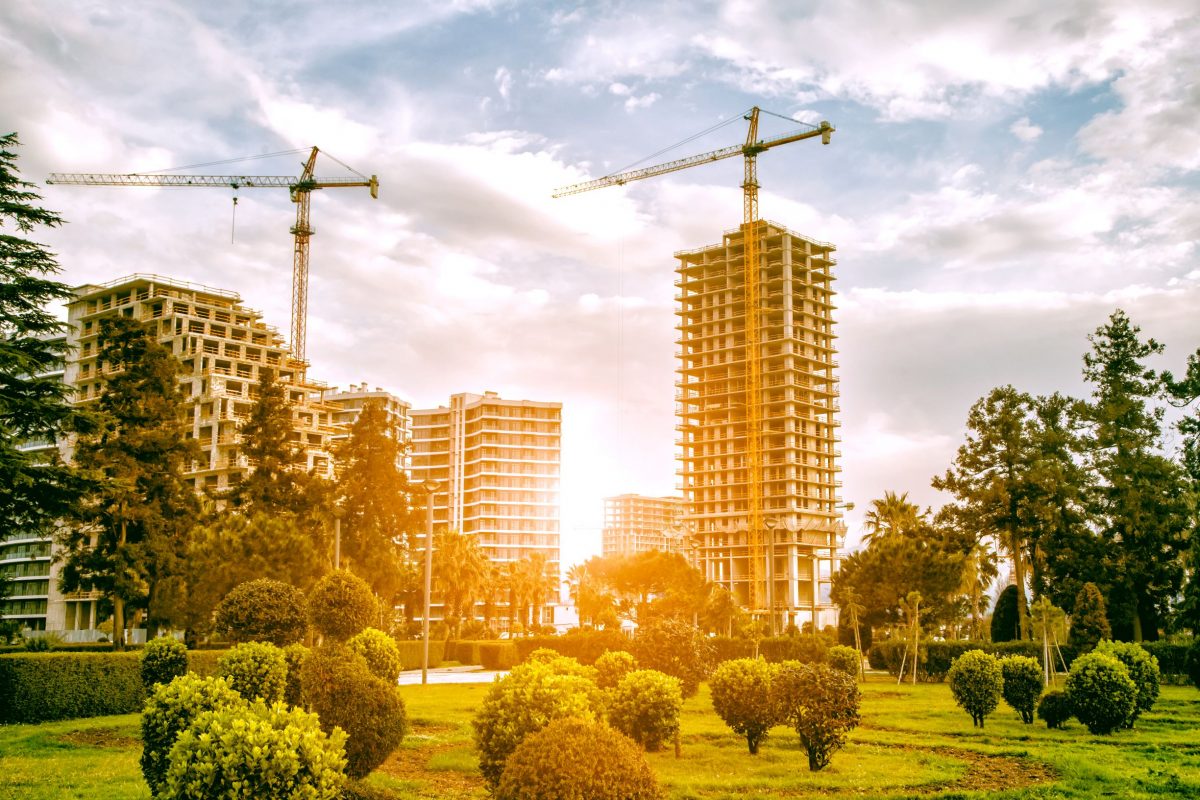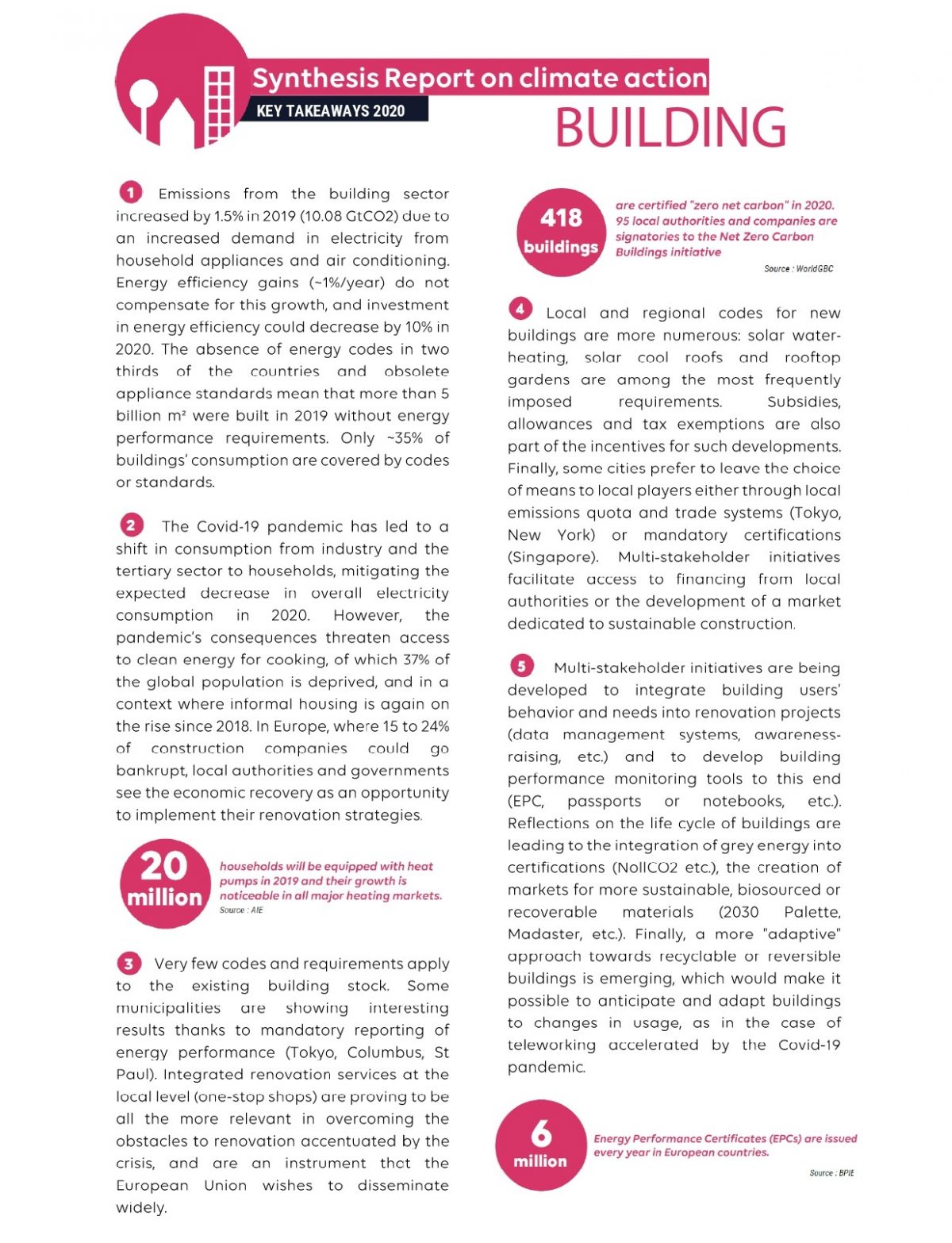
Climate: Consequences of Covid-19 on the building sector in 2020
In its 2020 Global Synthesis Report on Climate Action by Sector, Climate Chance analyzes the building sector, delivering a synthesis of the main trends and climate strategies in this field. An indispensable synthesis for understanding what direction climate plans will be heading in 2021.
Every year, the Global Synthesis Report on Climate Action by Sector analyzes the evolution of CO2 emissions according to the actions actually undertaken by « non-state » actors: local authorities, companies, NGOs, etc. in 6 major sectors of activity.
In this comprehensive analysis, on a global scale, Climate Chance examines the building sector by delivering a synthesis of the major trends and climate strategies in this field.
The Building section of Climate Chance’s Global Synthesis Report presents the main take-aways of the year 2020 in this emissions sector, which was also affected by the Covid-19 health crisis.
Has Covid accelerated or hampered climate strategies in the building sector?
The major lessons of the year 2020: What you need to know
The Climate Chance Observatory’s 2020 Global Synthesis Report on climate action by sector highlights several major lessons.
- To begin with, emissions from buildings increased by 1.5% in 2019 due to the increase in electricity demand driven by household appliances and air conditioning.
- The health crisis due to Covid-19 has resulted in the shift of consumption from industry and the tertiary sector to households, which has led to the decrease in overall electricity consumption expected in 2020. This decrease presents a threat, namely the difficulty to access to clean cooking fuel for many households.
- There are few codes and obligations, whether local or national, concerning the existing building. The number of local and regional codes for new construction is more extensive.
Gradually a more « adaptive » approach to building is being built towards recyclable or reversible buildings. This evolution would allow the anticipation of changes in practices, such as working from home due to Covid-19.

What our climate experts have to say
They took part in our Climate Chance Talks to highlight and discuss the major lessons analyzed in the « Building » section of the 2020 Sector-based Report. Among their observations and findings :

According to Yves-Laurent Sapoval (Ministry of Ecological Transition), a massive investment in energy renovation would be required to meet climate objectives. We should not limit ourselves to the use of renewable energy in this sector.
It is important to ensure that companies have the technical capacity to carry out the renovations, coupled with responsible financing. Concerning regulations, this subject can only progress through consensus and multi-partnership by organising collaboration all along the building chain: elected representatives, customers, residents, financials, etc.

According to Elizabeth Chege (Kenya Green Buildings Society), the buildings in Africa that will be in existence in 2050 are currently being constructed. This is an opportunity to build zero-carbon buildings.
The global Covid-19 pandemic has resulted in the shutdown of the construction industry in Africa, which made Africa aware of its dependence on foreign industries: it is therefore necessary for the continent to have its own energy efficient industries.
It is important to show that the financial sector can invest responsibly which will make a significant difference in the building sector.

For Oliver Rapf (Building Performance Institute Europe), the implementation of regulations is essential if the construction sector is to be receptive.
« We need the regulation to stimulate the sector but we equally need to channel innovation funding and support to the sector, so that the sector can transform its service offer to renovation. »
Watch the replay on our youtube channel.
Here all the analyses and decryptions of the Building section of the 2020 Sector-based Report.



